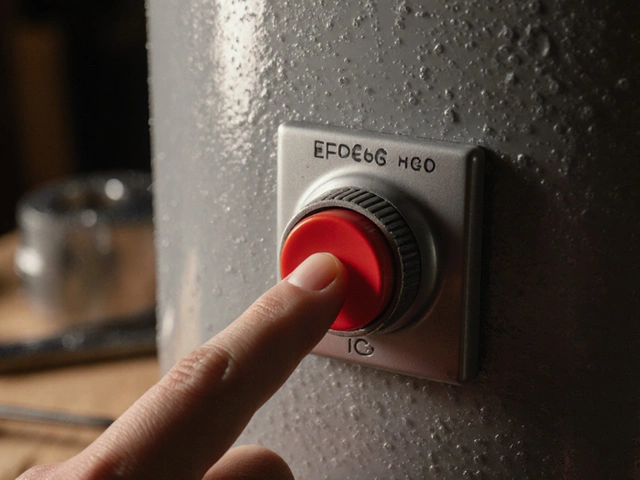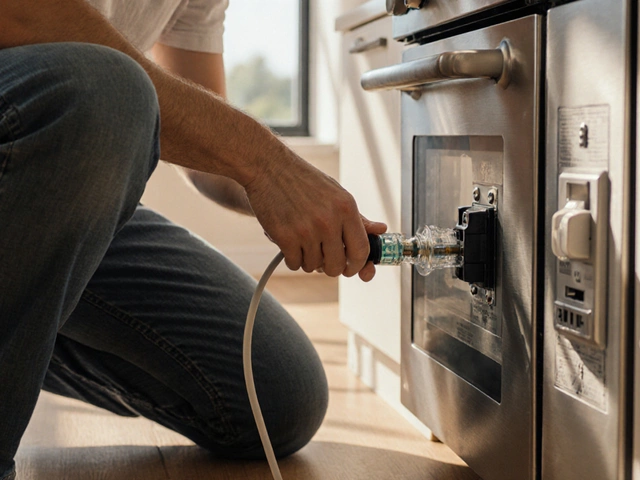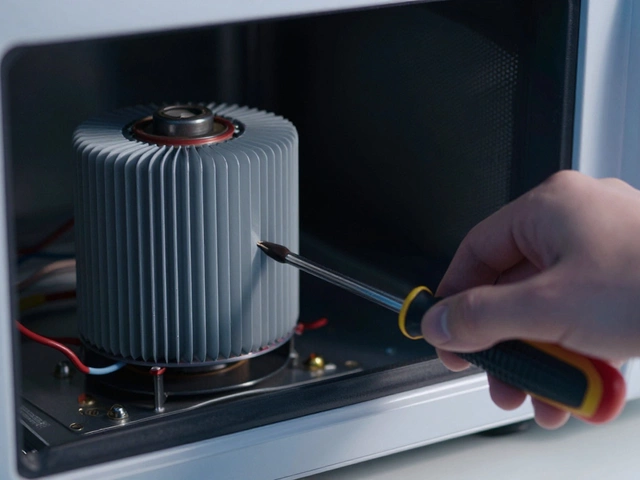Ever wonder why your fridge starts acting up after a few years while your oven seems fine? The answer often lies in how often each appliance gets a proper check‑up or repair. Knowing the typical repair frequency helps you plan budgets, avoid surprise breakdowns, and get the most out of your gadgets.
First off, usage matters a lot. A washing machine that runs three loads a week will wear out faster than one used once a week. Age is the next big factor – older models usually need more attention because parts wear out and technology gets outdated. The quality of the original install also plays a role; a poorly wired oven will trip circuits sooner.
Another hidden driver is maintenance habits. Skipping a yearly boiler service or never cleaning your dryer’s lint filter can double the chance of a fault. Finally, the brand and model matter. Some manufacturers design appliances for a longer life, while cheap knock‑offs may start failing after just a couple of years.
Washing machines: Expect a minor repair (like a hose leak) about every 4‑5 years. Major issues such as motor failure often show up after 8‑10 years. Look for noisy spins, water leaks, or error codes as early warnings.
Dishwashers: Minor fixes (clogged spray arms, door seal wear) usually appear around the 3‑4 year mark. A full‑scale breakdown, like a pump failure, tends to happen after 7‑9 years. If dishes are still wet after a cycle, it’s time to check the drainage.
Electric ovens and hobs: Heating element failures are common after 6‑8 years of hot cooking. If the oven won’t heat or one burner is dead, replace the element before it messes up other parts.
Heat pumps and boilers: These are built to last longer, but a regular service every 12 months can push the next major repair to 12‑15 years. Watch for odd noises, reduced heating output, or error codes on the control panel.
Extractors and fans: Kitchen or bathroom fans usually need a belt or motor replacement every 5‑7 years, especially if they run continuously. Dust buildup will make them louder and less efficient.
Remember, the numbers above are averages. Your experience may differ based on how you use each appliance and how well you maintain them.
So what can you do today? Start a simple log: note the purchase date, any repairs, and when you last serviced each item. A quick spreadsheet or even a note on your phone can save you a lot of headaches later. When a problem pops up, check the warranty – many issues are covered for the first few years.
Finally, don’t wait until a small glitch becomes a huge repair bill. A quick call to a local expert, like Bognor Regis Appliance Repair Experts, can often fix the issue before it spreads. Regular check‑ups, cleaning filters, and watching for early warning signs are the cheapest ways to extend the life of your home’s appliances.

If you’re shopping for a new electric oven or worried about breakdowns, brand reliability matters big time. This article looks at which appliance brands have the fewest reported repairs, backed by recent repair data and real user experiences. You’ll see how different brands compare, which models tend to last, and when it makes sense to spend a little more upfront. Plus, you’ll pick up tips to keep your oven running smoothly, no matter which badge it wears. Everything’s packed in with real talk—no fluff to wade through.

Learn how to properly reset your water heater's safety button - and why holding it down won't help. Find out what really causes it to trip and when to call a professional.

Learn why your electric oven suddenly stopped working, diagnose power, element, thermostat or safety fuse issues, and decide when to DIY or call a repair professional.

Fixing your own microwave might seem easy, but the high-voltage capacitor inside can deliver a lethal shock-even when unplugged. Here's why DIY repairs are dangerous and what you should do instead.

Trying to figure out if you need a ventilation fan or an extractor fan? This article breaks down the differences between the two, explains how each one works, and shares tips for choosing and maintaining the right fan for your home. You’ll also pick up advice on recognizing issues, making easy repairs, and knowing when it's time to replace. If you’ve got problems with humidity, bad smells, or stuffy air, this guide is for you.

Frustrated by cold water instead of a hot shower? This guide breaks down the most common reasons your hot water is running cold, with simple fixes anyone can try at home.